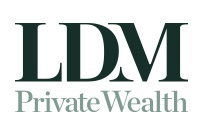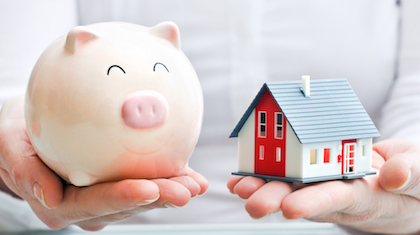Are you thinking about buying an investment property? Buying a property that you do not plan to live in can help you increase your wealth and accelerate your financial wellbeing. Property is usually viewed as a long-term investment with many advantages. It is, however, important to understand how property investment works, the costs involved and the potential risks before you decide if this is the right option for you.
How it works
An investment property is a property you buy with the intention to earn an income from it. Usually this is by renting it out to tenants. Another way people make money from investment properties is by ‘flipping’ them. This is when you buy a property, renovate it and sell it for a profit. Buying an investment property works similarly to buying a home to live in with a few key differences. When you buy an investment property, you may not be eligible for the same government schemes, you are looking for a property that will be desirable to a tenant instead of one that fits your own needs, and there may be extra fees and charges associated with maintaining the property, like a leasing agent or property manager. It’s also important you seek advice at tax time as you may need to pay tax on the rental income you earned or capital gains tax on an investment property you sold. You may also want to ask your tax accountant if you can claim certain expenses related to your investment property.
Rent-vesting
Rent-vesting is a strategy some home buyers use when they can’t afford their dream home yet. It’s where you rent a property to live in that’s right for you and your lifestyle, while you own an investment property that’s right for your budget. Before you can afford the home that will support your lifestyle, you can buy a more modest investment property in a more affordable area. The property you buy can then be rented out to tenants and the rental income can be used to pay off some of your home loan or fund your lifestyle. You then continue to rent a home in an area you love.
When your financial situation improves, you can then choose to upgrade and move into your dream home or use the equity and rental income from your investment property to fund a second property that better suits your needs.
Stay-vesting
Stay-vesting is when you buy an investment property while still living at home with parents or relatives. People who are still living at home paying board or cheaper rent might consider this option. It means you can continue to enjoy the benefits of living at home with cheaper living expenses while earning rental income and building equity from your investment property. When your financial situation improves, you can choose to move into your property yourself or upgrade to a home you want to live in.
While stay-vesting might be a choice for some, it is not an option for everyone and it’s important to consider if your current living situation is stable, beneficial and comfortable for everyone in the household before choosing to stay-vest.
Benefits & things to consider
Buying an investment property is a big decision. It’s important you have considered the benefits and the possible risks before purchasing a property. As always, it’s important you speak with a professional to receive individual advice tailored to your circumstances.
Benefits
-
Capital growth – if your property increases in value, you will benefit from a capital gain, however you should also consider the tax implications at the time you sell the property
-
Rental income – The rent payments you receive can cover some or all of your loan repayments
-
Rent-vesting – You can buy what you can afford to buy while renting where you want to live
-
Stay-vesting – You can make the most of living with family while building equity on the property you own (this option isn’t viable for everyone)
-
Tax advantages – you may be able to offset property expenses against rental income, including interest payments.
Things to consider
-
Extra costs – There are additional taxes, annual levies and costs associated with owning an investment property
-
Government assistance eligibility – You may not be eligible for government assistance schemes like the First Home Owner Grant
-
Interest rates – a rise in interest rates on your variable loan will mean extra loan repayments which may impact your net income (or loss) from the rental property
-
Time commitment – You will still need to invest time and money into managing and maintaining the property
-
Vacancies – There may be periods of time when the property is vacant, and you will still need to cover your loan repayments as well as the costs you pay for where you are living
-
Value loss – if the property value decreases below what you paid you could end up with a shortfall and owing more than the property is worth.
Costs
There are ongoing costs you might need to pay when you own an investment property.
They may include:
-
Body corporate or strata fees
-
Building insurance
-
Council rates
-
Land tax
-
Landlord insurance
-
Property management fees (if you are using a real estate agent)
-
Repairs and maintenance costs
-
Water rates
Speak to us today if you have any questions.
Source: It’s my home
This publication has been produced by Helia Group Limited (’Helia’). This publication may include content which is owned by third parties (’third party content owners’) and that has been provided to Helia for publication. Opinions expressed in this publication are of the writer or contributor and do not necessarily reflect the view of Helia or its affiliates. This publication covers a variety of topics including property, insurance and other financial products and services. Although some of the information involves tax, stamp duty, legal, accounting, financial or similar issues, Helia, its affiliates and the third-party content owners (as to their materials only) (‘we’) are not in the business of offering such advice and nothing in this publication constitutes a personal recommendation or advice. You must consult with your own professional advisers to examine the legal, tax, accounting or investment aspects of any information presented in this publication and how they may affect your particular situation.
The information also does not contain all of the applicable terms, conditions, limitations or exclusions of the products or services described. We expressly disclaim all responsibility and liability for any action or inaction by you in reliance or partial reliance on any material, information, opinion or advice in this publication or referred to in this publication. The information is current as at the date of publication but may change without notice. We are under no obligation to update the information or correct any inaccuracy which may become apparent at a later date. We do not take any responsibility for any reliance on the information contained in this publication or for its reliability, accuracy or completeness. Nothing in this publication is an offer by or on behalf of Helia or its affiliates to sell, or solicit an offer to buy, any security or financial product.
COPYRIGHT NOTICE All copyright in the contents of this publication belong to Helia, its affiliates and licensors or to third party content owners. All rights are reserved. To the extent permitted by law, no part of any materials in this publication may be reproduced or transmitted in any form without the express written consent of Helia.



